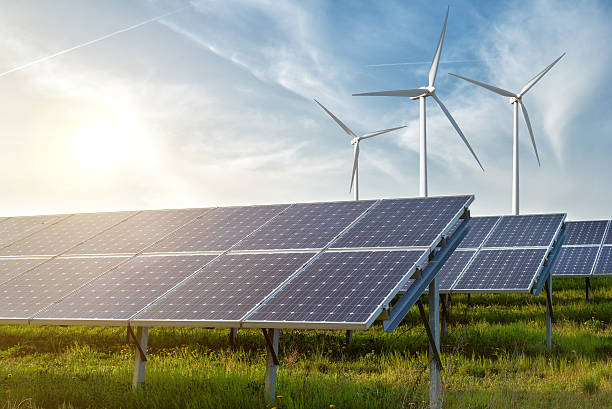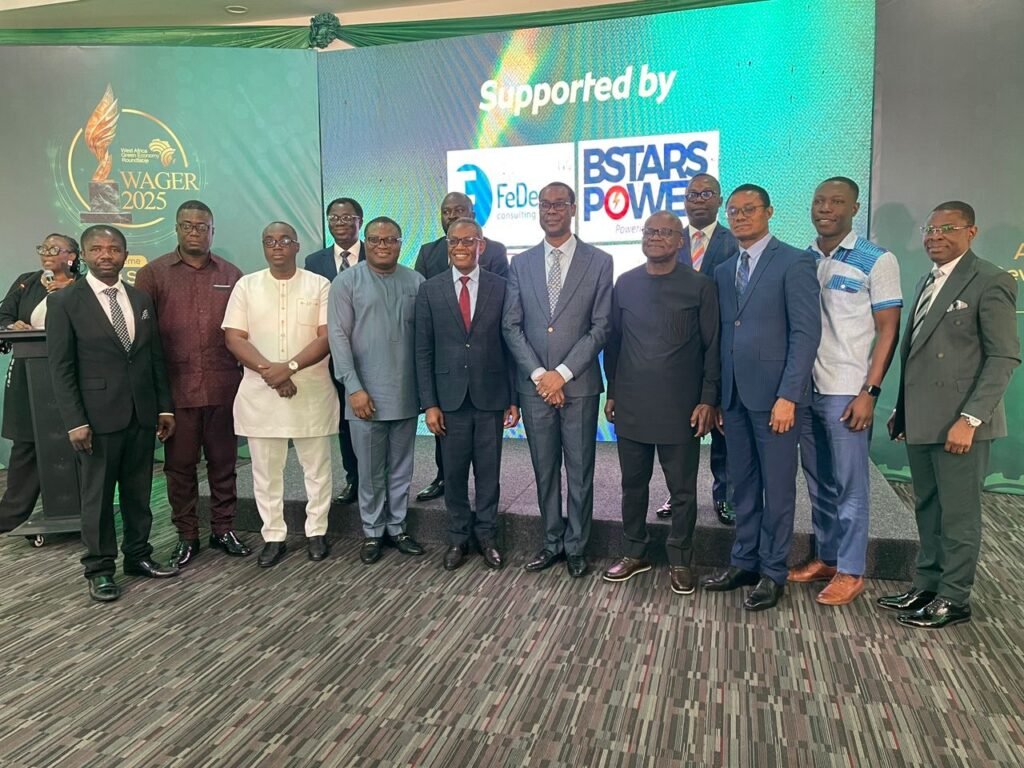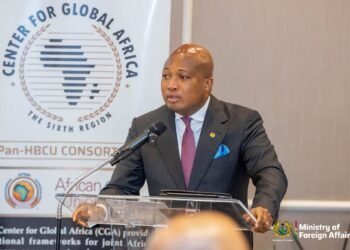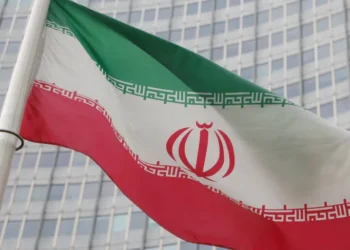The Ministry of Energy and Green Transition has projected that Ghana will need more than $500 billion in investments to achieve a net-zero energy transition by 2070.
The announcement was made at the West Africa Green Economy Roundtable 2025 (WAGER 2025) in Accra, where government officials, financial experts, and civil society leaders convened to discuss strategies for sustainable development.
Chief Director of the Ministry, Solomon Adjetey, underscored the government’s determination to build a resilient framework for the transition.
“Net zero means that whatever emissions you generate must be reduced or eliminated through matching measures.
“Our programme targets 2070, but we are working to reach that goal even earlier. As outlined in our transition document, the estimated cost for Ghana to achieve net zero is over $500 billion.”
Mr. Solomon Adjetey, Chief Director of the Ministry of Energy and Green Transition
Mr. Adjetey added that to mobilize this scale of financing, the Ministry plans to introduce tax incentives for renewable energy projects and streamline regulations to create a more attractive investment climate for the private sector.
According to him, the government recognizes that public funds alone cannot cover the transition costs and that private capital, both domestic and international, will be pivotal.
Financing the Green Transition

The urgency of financing was echoed by Mr. Paa Kwasi Koomson, Former Vice President at Bank of America, who argued that climate action should be understood not as charity but as smart economics.
“African governments and financial institutions must view climate action as an investment with tangible economic returns rather than a burden.”
Mr. Paa Kwasi Koomson, Former Vice President at Bank of America
Mr. Koomson noted that Africa requires an estimated $184 billion annually to meet its climate goals under the Paris Agreement.
He described the funding gap not as a constraint but as an opportunity to unlock blended finance and attract private sector participation.
“There is no shortage of capital in the world, but what is lacking are bankable green projects, strong partnerships, and transparent governance structures to channel these resources effectively.”
Mr. Paa Kwasi Koomson, Former Vice President at Bank of America
The former banker highlighted the untapped potential within African financial institutions such as banks, pension funds, and insurance companies, which collectively hold billions of dollars in assets.
“Redirecting even a fraction of these funds into renewable energy, sustainable housing, and eco-friendly infrastructure could trigger an economic transformation of historical proportions.”
Mr. Paa Kwasi Koomson, Former Vice President at Bank of America
He called for the expansion of green bonds, sustainability-linked loans, and carbon markets.
The roundtable, organized by Pent Media Centre in partnership with African Consolidated Analytical Limited, gathered policymakers, business leaders, academics, and civil society actors to deliberate on the theme “Advancing Sustainable Development through Green Growth in West Africa.”
Mr. Koomson emphasized that the green economy represents more than emissions targets—it is an opportunity to create jobs, reduce energy poverty, strengthen food security, and build resilience against climate shocks.
Mr. Koomson noted, “It is the key to building a West Africa that can compete in the 21st century global economy.”
He urged leaders to leave the roundtable with “concrete commitments, actionable roadmaps, and partnerships that would inspire investor confidence.”
Tackling Governance and Social Challenges

Beyond financing, speakers highlighted the importance of governance, community engagement, and social accountability in the green transition.
Chairman of the Prisons Service Council, Apostle Alexander Nana Yaw Kumi Larbi, addressed the issue of illegal mining, known locally as galamsey, which has undermined environmental sustainability in Ghana.
“Galamsey and illegal mining have been with us for a long time, but not at the scale we see today.
“The church has a key role to play by engaging communities and speaking to the conscience of people, especially those in churches and mosques.”
Apostle Alexander Nana Yaw Kumi Larbi, Chairman of the Prisons Service Council
His remarks reflected a broader recognition that faith-based organizations and local communities must be active partners in driving environmental responsibility and curbing practices that threaten long-term sustainability.
Director of the Pent Media Centre, Ps. Dr. Felix Dela Klutse, stressed the need for cross-sector partnerships to ensure that West Africa can seize the opportunities of the green transition.
“It’s imperative that we bring together academia, industry leaders, the clergy, policymakers, and environmental advocates to design practical solutions.
“The African Green Economy Roundtable provides a platform to discuss how to make the green economy a reality.”
Ps. Dr. Felix Dela Klutse, Director of the Pent Media Centre
With clear policies, innovative financing instruments, and multi-sector collaboration, Ghana can not only meet its 2070 target but perhaps achieve it even earlier.
The challenge now lies in turning pledges into tangible progress that delivers lasting impact for its people and the wider West African region.
READ ALSO: Market Cheers as Ghana’s Treasury Auction Breaks Four-Week Drought with 15.8% Oversubscription

















